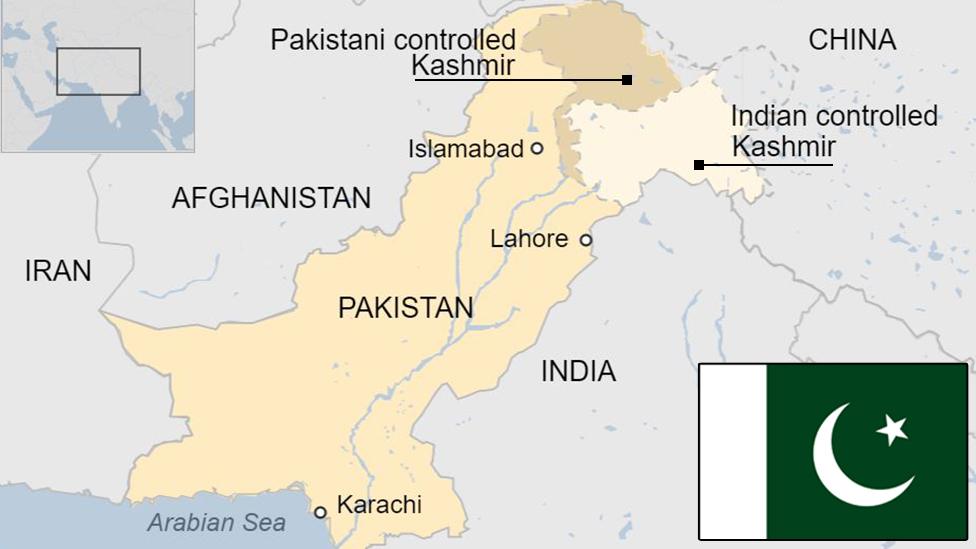What lies behind the Quetta police academy attack?
- Published
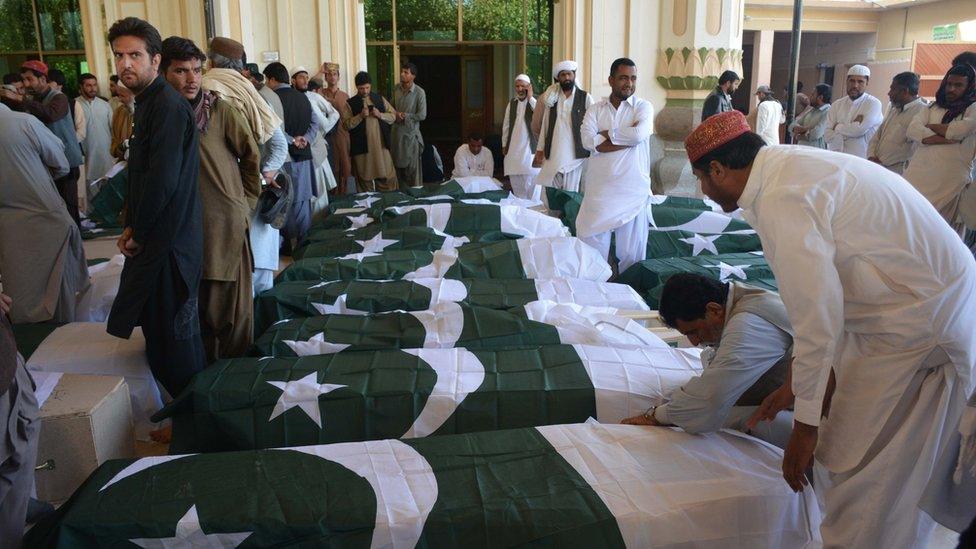
So-called Islamic State claimed the attack, but officials blame the militant group Lashkar-e-Jhangvi
Quetta was once called "Little Paris" due to its pleasant weather, small population and the abundant fruit orchards of its surrounding river valleys.
Today it wears the look of a sprawling shantytown with crowded roads, dirty streets and a continuing sense of foreboding.
Monday's attack on a police training college has aggravated a sense of fear rekindled by an unusually bloody attack on a city hospital in August in which more than 70 people were killed.
That incident came after a period of relative calm, generally attributed to the Pakistani military's 2014 operation in the north-western tribal areas.
That pushed the increasingly hostile Pakistani Taliban out of their sanctuaries and into Afghan territory.
It drove home the truth, though, that the militants were far from defeated. Monday's attack is a reaffirmation of that truth.
Dozens killed at Pakistan police college
Since August, Quetta's journalists, lawyers and civil society have become increasingly nervous and have made painfully elaborate security arrangements for their recent gatherings, says a senior Quetta-based journalist, Shahzada Zulfiqar.
"When we held a couple of conferences at the Quetta Press Club recently, we sealed all entrances and only allowed certified journalists to enter," he said.
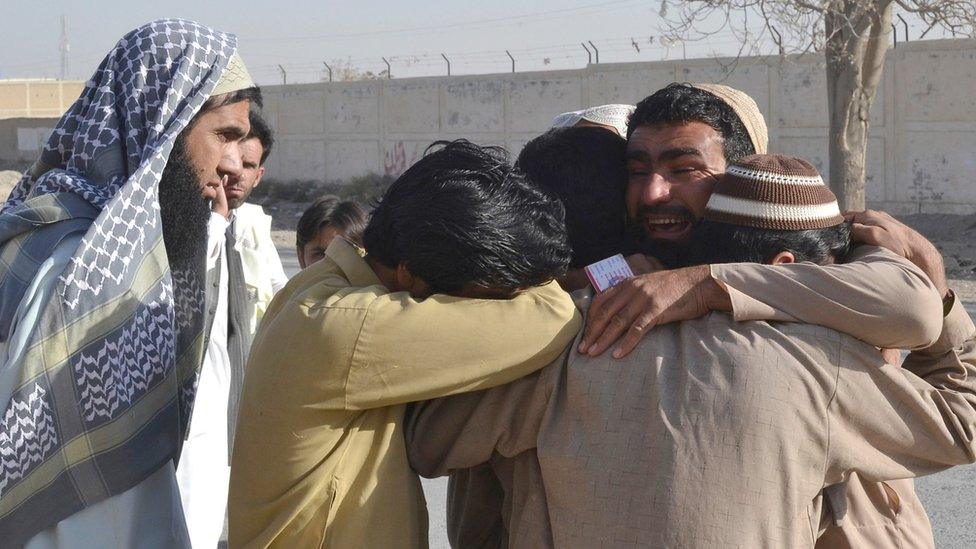
Gunmen and three suicide bombers attacked the academy, killing 59 cadets and guards
On Monday night, security personnel evacuated everyone who wasn't directly involved, including journalists, from the emergency area of the city's central Civil Hospital where most of the casualties were brought.
"There is fear in the city, and people can't help wondering where the militants will strike next," Mr Zulfiqar says.
Quetta is no stranger to militant attacks, but unlike in the past when militants used to mainly target Shia Muslims, they are increasingly willing to hit any soft target with multiple casualties.
This has led to two developments: Pakistani officials have started to accuse Pakistan's arch rival, India, of using Afghan territory to foment trouble in Balochistan; and the international community has increased its focus on the Quetta-based sanctuaries of the Afghan Taliban.
Many point out that Quetta seems to have finally landed at the centre of a complex existential struggle involving regional powers and a confusing array of militant networks.
Like most other Pakistani cities, Quetta witnessed its earliest militant attacks in the 1980s and 1990s, but they were mostly sporadic, with limited impact, and largely of a sectarian nature.
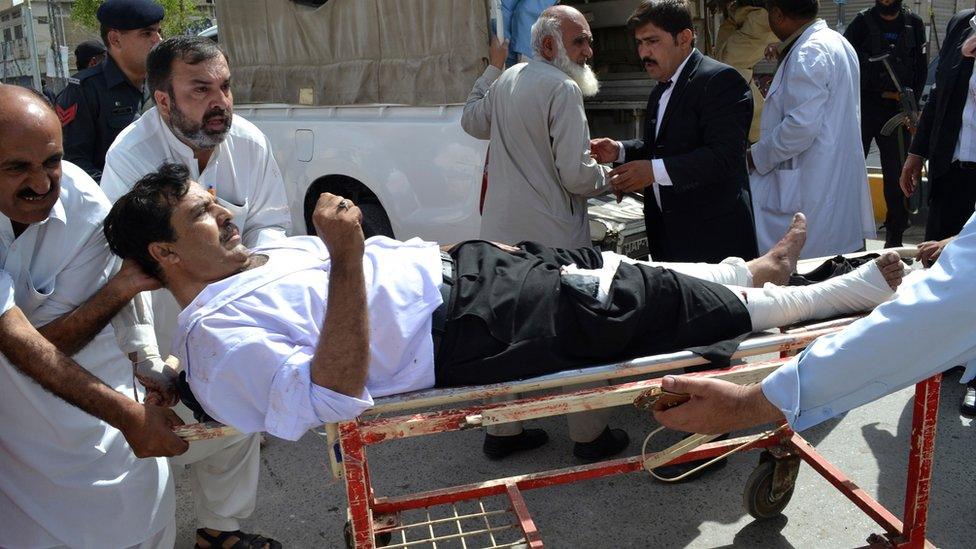
Security was tightened after an attack on a central Quetta hospital in August
The violence assumed ominous proportions after 2003, when suicide bombers attacked a number of gatherings of ethnic Hazara residents who follow Shia Islam and are considered heretics by Sunni hardliners. Hundreds of Hazaras were killed.
Analysts say this was happening at a time when an armed separatist insurgency led by secular, nationalist Baloch youth had paralysed the Balochistan government and were causing considerable embarrassment to Islamabad.
Easily tolerated
At that time, Islamabad was caught up in a struggle to help the international forces in Afghanistan overcome a growing Taliban insurgency, while at the same time preserving its own proxies in the Taliban movement so as to be able to use them to limit Indian influence in Afghanistan in the future.
Many believed that sectarian killings in Balochistan helped the Pakistani security establishment dilute the impact of Baloch separatists. And since the sectarian outfits that perpetrated those killings were allied to Afghan Taliban and were often willing to be used against separatists, they were easily tolerated.
Despite this history, Quetta did not suffer the kind of wider, non-sectarian militant attacks that made life miserable for the residents of other border cities, such as Peshawar.
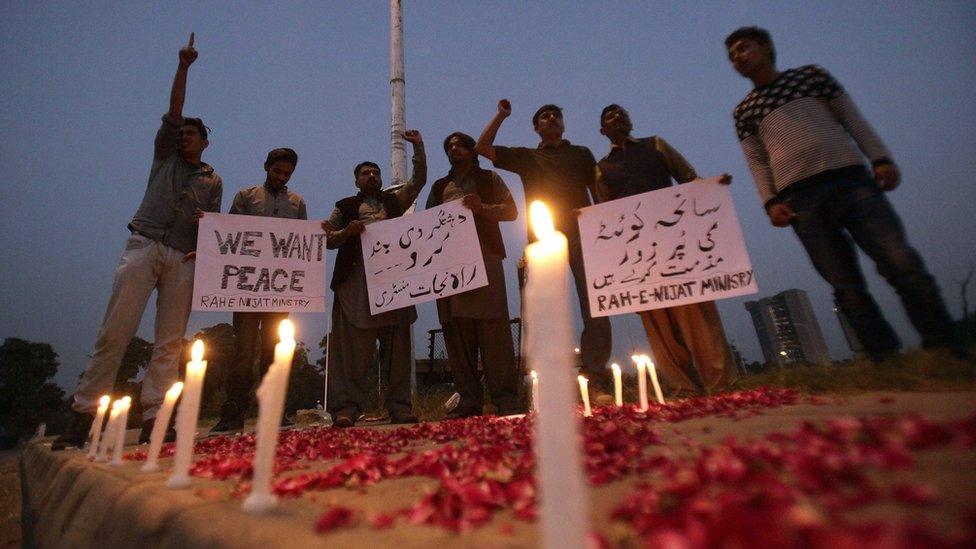
Foreboding and fear have increased in the city once known as "Little Paris"
Analysts believe there was a strategic reason behind it.
Quetta, like Peshawar, had been the recipient of a large Afghan refugee population in the 1980s. This influx changed the demography of Quetta, overwhelmed its way of life and created large refugee settlements that served as recruiting fields and base camps for Islamist fighters.
After the 9/11 attacks on the US in 2001, Quetta's geographic position as the gateway to southern Afghanistan - the stronghold of the Taliban - made it the most convenient destination for the Taliban leadership to move into and to set up their secret headquarters.
As such, it suited both the Pakistani state, and militant groups - including those that had turned against Pakistan after 2007 - to keep the place largely unrattled, analysts say.
The change in militants' tactics came when the Pakistani military moved in 2014 to evict anti-Islamabad Taliban from their sanctuaries in the north-western tribal region.
This reduced the ability of these groups to launch frequent attacks in the north-west, such as Peshawar, Islamabad or Lahore.
But Afghan Taliban sanctuaries around Quetta are still intact, and provide effective cover to their Afghan and non-Afghan allies.
This does not augur well for Quetta.
- Published25 October 2016
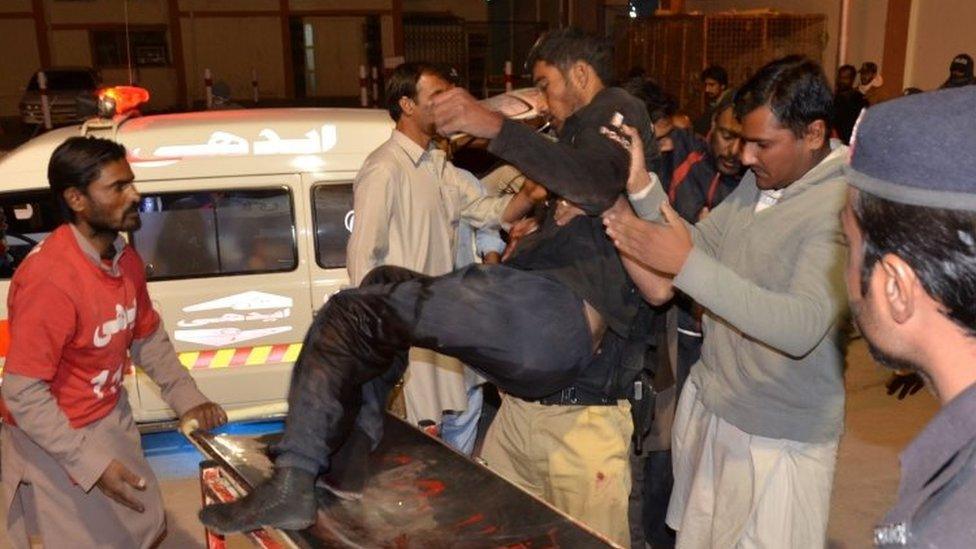
- Published8 August 2016
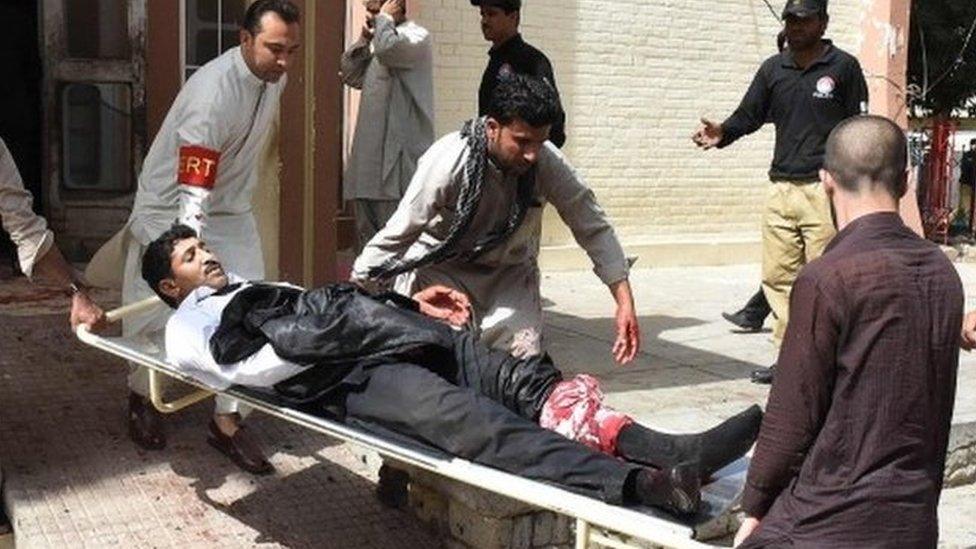
- Published12 August 2022
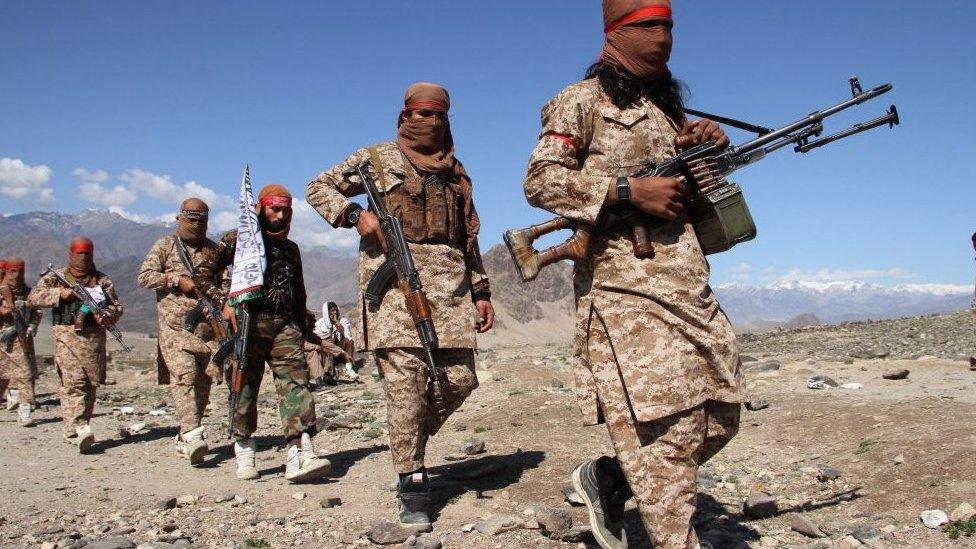
- Published22 February 2014
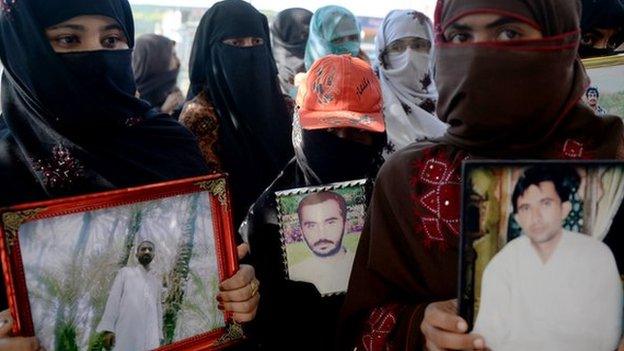
- Published6 October 2015
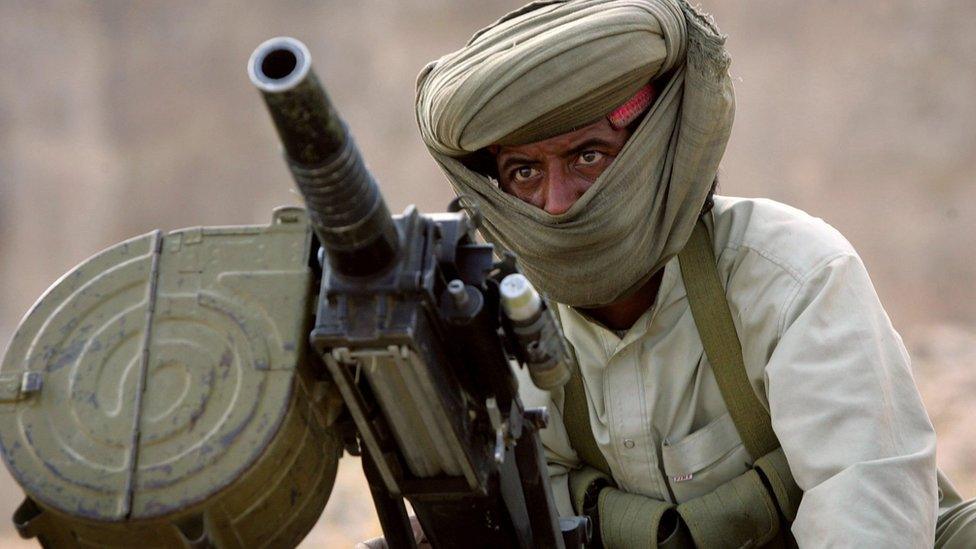
- Published11 January 2013
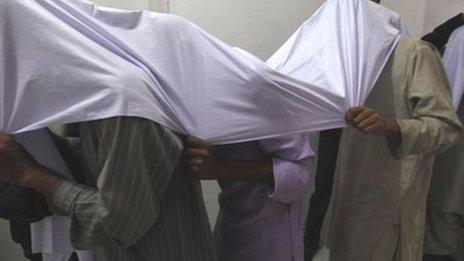
- Published15 March 2024
